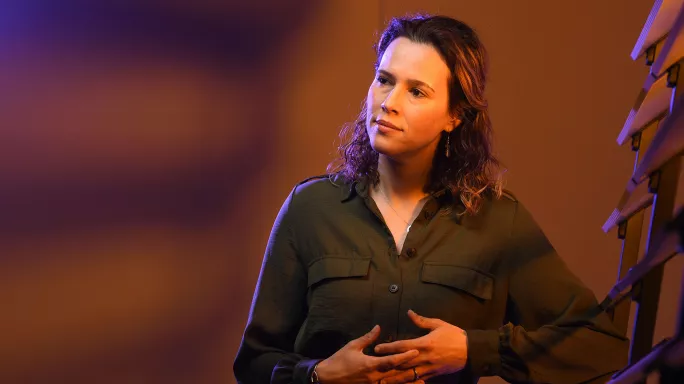Burnout. Retention woes. Student struggles. Teacher wellbeing is reportedly at its lowest point for half a decade, while rates of child and adolescent mental health issues are on the rise. But researchers at the University of Derby are pioneering a perhaps surprising solution: compassion.
Frances Maratos is a professor of psychology and affective science at the university and is among the researchers developing and evaluating curriculums to teach compassion to educators and students. Their findings suggest it can help to reduce anxiety and stress in staff and improve emotional regulation in students.
“In our definition of compassion, it’s not only noticing distress or suffering in yourself or others but also having the courage and the discernment to do something about it,” Maratos explains.
“Imagine you’re a highly empathic person, and your route to work every day takes you past a homeless person. It really distresses you, you find it really hard because you identify with them. If you’re highly empathic, what can happen is you will avoid the issue - so you might walk a different route.
“To do something about it - to have a conversation with that homeless person, for example - involves a lot of courage. That’s the difference between empathy and compassion.”
Principles of compassionate mind training
Compassionate mind training (CMT) focuses on helping people be motivated to relieve their own, and others, suffering through different styles of thinking, feeling and behaving. Maratos and colleagues have produced three curriculums: a CPD course offering compassionate mind training for teachers, a PSHE module for children aged 10-12, and another for students in further and higher education.
“We do psychoeducation about wellbeing, about how the brain works and about understanding compassion, but we also think about the stresses - and teachers especially are in very competitive situations,” she says.
“What we do with our schools and our teachers, especially in the UK, is we have a penalising system. We put our teachers in situations where we measure them competitively against everybody else, and we do the same for our pupils as well.”
She continues: “We always put our staff and our pupils in competitive, insecure situations, and when you put people in those situations, and there’s a fear of failure, they feel like they can’t fail. It’s really bad for wellbeing, and if you don’t have good wellbeing you’re not going to be an effective teacher, and you’re not going to be an effective pupil.”
Compassion in schools: rolling out the research
Research published by Maratos earlier this year was the first to rigorously assess the impact of CMT on students, following the success of the approach with teachers. For five weeks, about 70 children aged 11 and 12 took part in either their usual PSHE lessons or the CMT-based course.
The young people reported favourably on their experiences of the CMT lessons, and the research suggested benefits included improved emotion regulation, kindness to others and feelings of inclusion.
The team is now rolling out a revised six-lesson version of the course in more schools, increasing sample sizes and seeking to replicate the initial results. Maratos also hopes that CMT interventions will nip longer-term mental health issues in the bud, particularly as children progress through secondary school.
“The reason we did this age group is because we know, in children, one of the most stressful times in their life is transition from primary to secondary school,” she says.
“What we’re trying to avoid is being reactive, we don’t want to address mental health problems after they’ve happened. We want them to be able to cope with things, so we’re introducing the emotion skills and the ability to be compassionate and kind to themselves in order to provide them with a buffer and an approach to wellbeing that hopefully will work.”
For the latest research, pedagogy and practical classroom advice delivered directly to your inbox every week, sign up to our Teaching Essentials newsletter






